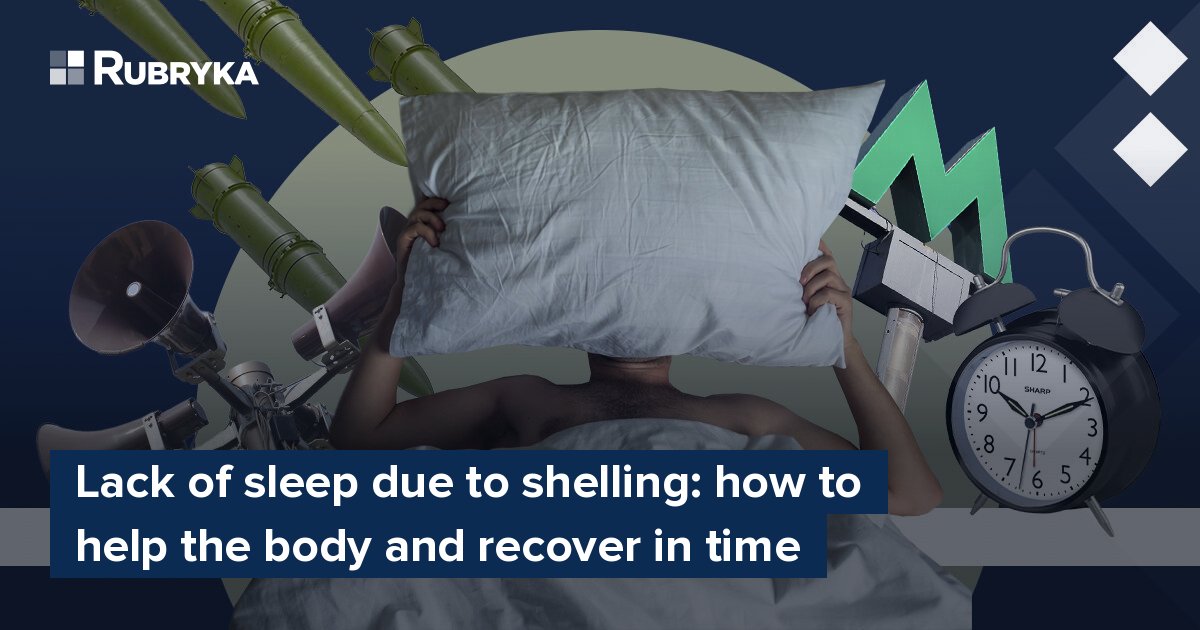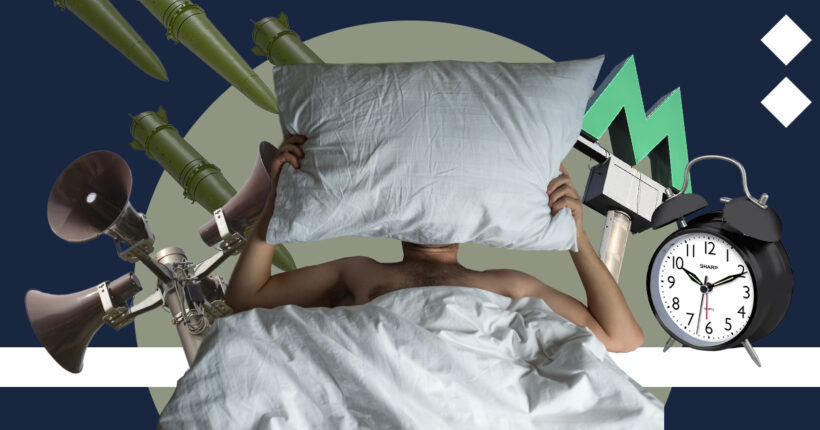
What is the problem?
How dangerous is lack of sleep
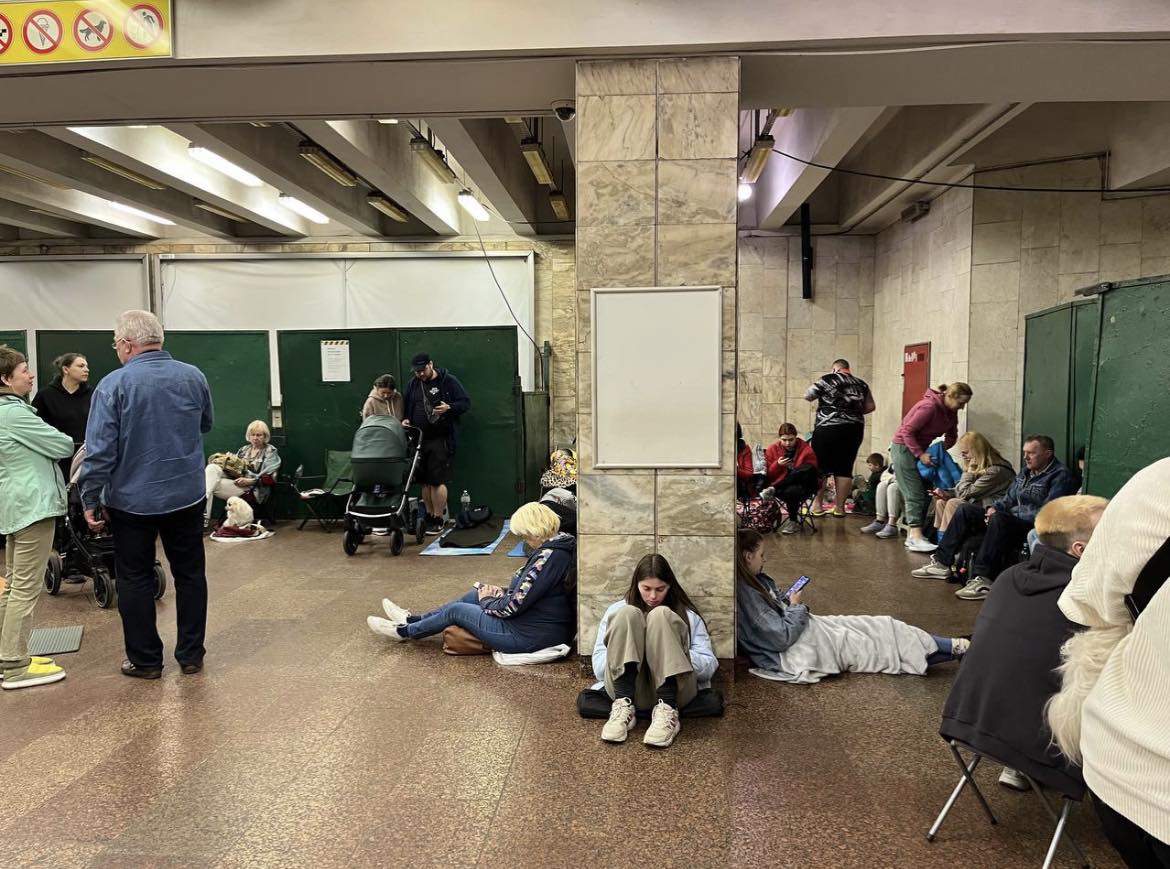
Kyiv residents spend air raids in the subway. Photo from social networks
A full night's sleep is an integral part of good health. For the normal functioning of all body systems, a person needs at least seven hours of sleep at night.
Insomnia can be one-time or systemic (chronic) — the second option of sleep disturbance has become relevant for many Ukrainians. Forbes calculated: only in May residents of Kyiv could lose up to 84 hours of sleep due to night attacks on the capital by Russians.
A single-time lack of sleep has a short-term effect on the body, which everyone is familiar with, explains neuropsychologist Olha Lavrynenko: drowsiness and fatigue appear, and possible irritability, causing concentration decrease.
Although it depends on age and personal factors, overcoming this condition usually passes quite quickly. The first measures for short-term sleep disturbance are to give yourself a rest. Reduce or eliminate the consumption of tonic substances, for example, coffee, do an information detox, limit burdensome communication, and give the mind and body peace and quiet as much as possible.
With a prolonged lack of sleep, all these sensations intensify, and in the case of constant shelling, an even greater stress factor is added. Here, health begins to suffer: from vascular and muscle spasms (headaches, pain in the back and limbs, stomach, etc.) to disruption of hormonal processes and metabolism with further consequences. That is, the state of exacerbation can develop into a chronic disease. Systemic lack of sleep negatively affects the cardiovascular system, increases the risk of stroke and heart attack, disrupts endocrine function, and provokes and increases the risk of type two diabetes and obesity.
Another negative aspect of the constant lack of sleep is the possible deterioration of relationships with loved ones and an increase in conflict situations due to exhaustion of the psyche and nervous system.
What is the solution?
How to take care of yourself after a night of air raid?
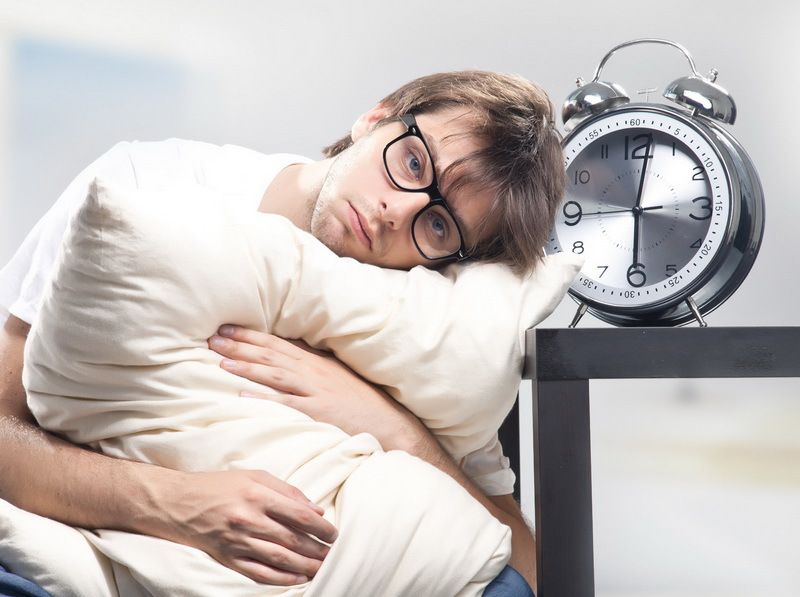
Managing the sleep factor is everyone's adult responsibility. The photo is illustrative
Regardless of the duration of sleep deprivation, managing your recovery process is essential, Lavrynenko emphasizes. "Unfortunately, I often come across the position of 'I will adapt, it will pass, the body will handle itself,' etc. It only works when you're 20, have great genetics, and are sleep deprived for a short period." Managing the sleep factor and other important processes in one's life — nutrition, sports, quality of the environment, relationships, development, money — and not hoping that everything will somehow work itself out is everyone's adult responsibility.
Ukrainians are all now bothered by the aggressor's shelling. Whether you go to a shelter during an alarm or hide following the rule of two walls, you should still take care of your sleep and your sleeping place, emphasizes Lavrynenko.
You can go to the shelter with a sleeping bag. Arrange the most comfortable sleeping place in the corridor from the evening. If this is impossible, you should learn to manage your own sleep time soon to compensate for the lack of sleep.
It's about canceling or rescheduling everything for the next day or two, redirecting this time to sleep, and making up for the time needed for rest. A neuropsychologist advises to sleep in the afternoon after a restless night as much as possible. If you can't sleep because of stress and overstimulation, help yourself with sedatives or sleeping pills.
"Now, it is difficult to predict whether there will be one such night or several of them in a row. In any case, it is worth understanding — additional planned rest, if possible, should be proportional to the time of exhaustion," Lavrynenko shared with Rubryka. "If we have a sleep disorder for three days, we look for additional opportunities for recovery for three days. Sometimes even more, taking into account long-term accumulated chronic fatigue, which is currently observed in many people."
It is also worth going to bed between nine to ten p.m. On weekends, you should also catch up on sleep. If you feel like taking a nap during the day and there is an opportunity to sleep for at least 15 to 30 minutes, giving in to this impulse will be correct.
Sleep is a priority
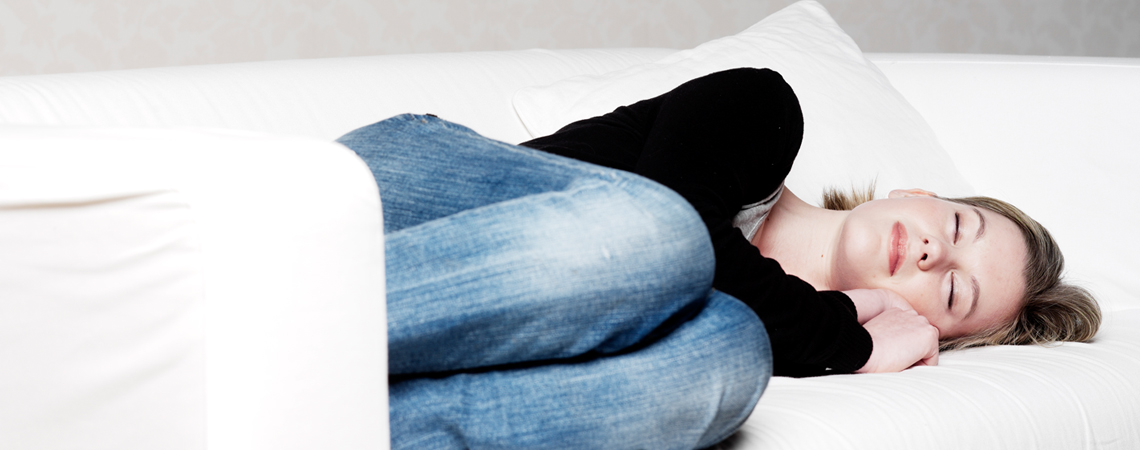
Take a nap during the day for at least 15-30 minutes. The photo is illustrative
According to the expert, under the conditions of constant lack of sleep, you should generally review your lifestyle and transfer it to a minimally sufficient effort to perform only the necessary actions and duties. If there is such an opportunity, the rest of the work should be temporarily put on hold, and use this time for yourself and your recovery. But what if you can't catch up on sleep?
"I have an important rule — to avoid the worst, it is necessary to pretend that it has already happened and act accordingly," the psychologist shares her life hack. "If you constantly neglect your condition in the very long term, irreversible changes may occur, which will not only worsen the quality of life but also pose a real threat to health. Take a vacation, relieve yourself from household tasks, and delegate part of the work. If necessary, see a doctor. This applies to people who are used to carrying everyone's weight on their shoulders. If a lot depends on you, take care of yourself accordingly."
Also, according to the psychologist, nutrition is vital, especially the body's saturation with protein and low-density cholesterol. Endocrinologists and nutritionists will help to implement it qualitatively.
Not helpers but enemies
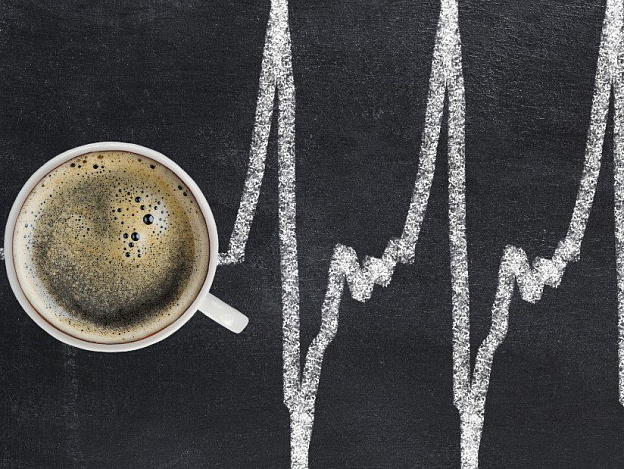
Coffee and energy drinks do not cure but overstimulate
Often, after a sleepless night, people drink a lot of coffee and energy drinks for productivity. According to a neuropsychologist, this is a bad option. In this case, we fall into a vicious circle — energy drinks and coffee overstimulate the nervous system and prevent us from falling asleep the following evening. The amount of coffee should be dosed — no more than two cups and only in the first half of the day.
The psychologist notes: even if you are in relative safety and don't run to the shelter at night, it's also a bad decision to stay awake during alarms on social networks, news, and watching TV series. It is clear that this is due to anxiety, but in this case, it is worth working it out with a psychotherapist or going to the doctor and deciding on your line of sedatives, sleeping pills, or other drugs.
"We have already talked about information hygiene before, but I repeatedly emphasize that it is worth limiting reading news only to those that directly affect your safety if it is not part of your job," emphasizes Lavrynenko.
Even more useful solutions!
Sleep is one of the primary human needs. Our health and efficiency depend on it. We would like to recall the main advice of psychologists regarding sleep during the war:
- go to bed and wake up at the same time;
- do not read the news or use the phone at least half an hour before bedtime;
- do breathing exercises: listen to your own breathing, try to inhale and hold your breath, and then exhale slowly;
- during the day, lie down to rest for at least twenty minutes — this will help to significantly improve your well-being and restore your strength;
- restore pre-war living conditions where possible. Daily routine exercises will help to disperse stress and maintain a regular rhythm of life;
- call and text in messengers to loved ones. We have a common problem, and mutual understanding is inspiring. A short pleasant conversation can balance the state of mind and calm anxiety;
- before going to sleep, dream and think about good things, and remember pleasant moments that warm your soul;
- do light physical exercises and walk in the fresh air more often — this will help you fall asleep on time;
- prepare a safe place to sleep. It can be a bathroom, a shelter, or a room where the two-wall rule applies. Bring blankets, pillows, sleeping bags, and warm clothes. Children should bring toys with them. Be sure to hug them — it will help calm, warm, reduce anxiety, and even heart rate. Hold the child to you, caress, sing a lullaby;
- touch a loved one, a child, a toy, or a pillow while sleeping. Tactile contact will help to calm down and relieve stress;
- meditation, yoga, and other conscious relaxation techniques also help to reduce anxiety.
Newsletter
Digest of the most interesting news: just about the main thing


